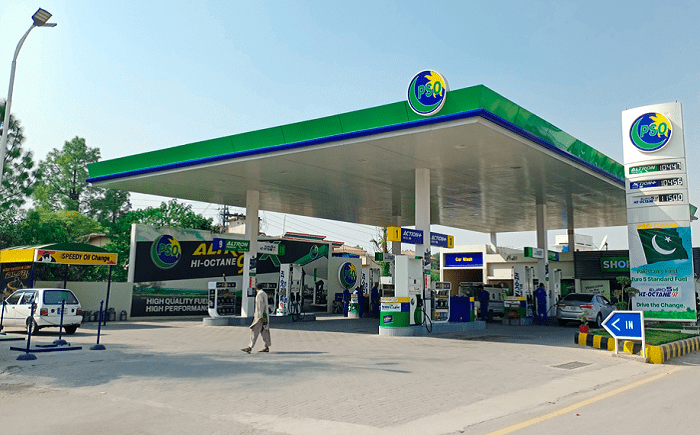Pakistan Faces Record Fuel Price Surge, Igniting Inflation Fears
ISLAMABAD: The cost of fuel in Pakistan hit unprecedented highs on Tuesday as the newly appointed caretaker government implemented a substantial increase in petrol and diesel prices, marking the second substantial hike in just two weeks. This surge is expected to further fuel inflation, which had previously cooled over the past couple of months.
According to a notification by the finance division, the new petrol price will stand at Rs290.45 per litre, following a staggering increase of Rs17.50 per litre. The cost of high-speed diesel will see an even more significant rise, going up by Rs20 to reach Rs293.40 per litre.
Late into the night, the Ministry of Finance unveiled the revised prices, which had been approved by caretaker Prime Minister Anwaarul Haq Kakar, who was sworn in on Monday.
The finance division clarified that the surge in prices of these essential fuels was in response to the international market's increase in petroleum prices over the past two weeks. Notably, the government notification did not indicate any alterations in the prices of kerosene and light diesel oil.

This latest surge in fuel prices follows a similar increase implemented by the outgoing government on August 1. Consequently, the cost of fuel has skyrocketed by nearly Rs40 per litre in a mere 15 days.
Previously, high-speed diesel prices had reached their peak at Rs293 per litre in March of this year. This specific fuel type is primarily used in heavy transport vehicles, trains, and agricultural engines, having a direct impact on the cost of essential goods like vegetables.
Similarly, petrol prices had reached their peak at Rs282 per litre in mid-April, only to later drop to around Rs253. This fuel type is mainly utilized in private transport and smaller vehicles, directly affecting the budget of middle and lower-middle-class citizens.
Recent data indicates that inflation, as measured by the Consumer Price Index (CPI), was at 28.3 percent for July, providing a slight reprieve compared to June's 29.4 percent and May's record 38 percent. Nonetheless, this figure remains notably high, especially considering the high-base effect.
Figures from the finance ministry showcase that the current petrol price (Rs290.45 per litre) is 24 percent higher than the cost exactly a year ago (Rs233.91 in mid-August). Furthermore, it stands 35 percent higher than its lowest point over the past year (Rs214.8 in mid-December).
At present, general sales tax on all petroleum products in Pakistan is at zero, but the government imposes a petroleum development levy of Rs55 per litre on petrol and Rs50 per litre each on high-speed diesel and high-octane blending component (HOBC) and 95 RON (research octane number) fuel. Additionally, the government levies customs duty of about Rs18-22 per litre on petrol and high-speed diesel.
Petrol and high-speed diesel serve as substantial revenue sources for the government, with monthly sales of 700,000 to 800,000 tonnes, in stark contrast to the monthly demand of merely 10,000 tonnes for kerosene. The increase in the prices of fuel is likely to push up the prices of commodities and consumer goods as well.
